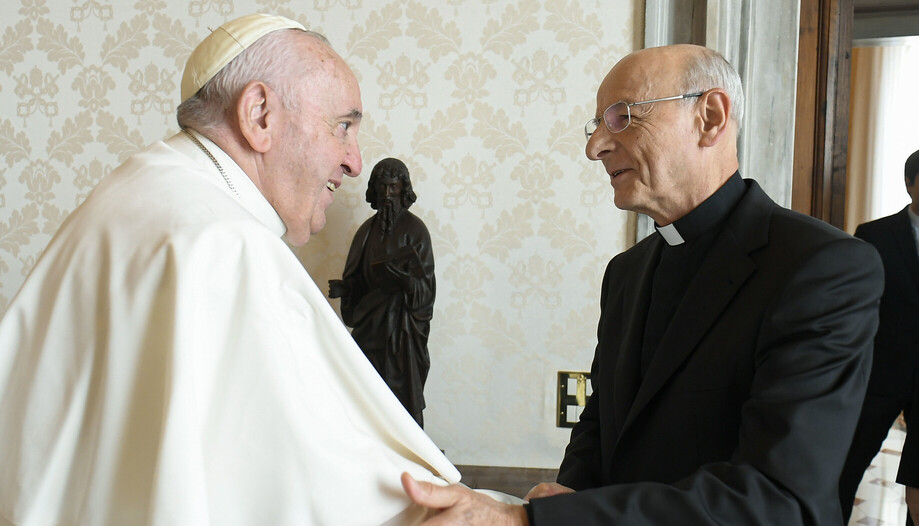Easter week, specifically April 12-16, is the date chosen by the Prelature of Opus Dei for the Extraordinary General Congress convened to adapt the Statutes of the Prelature to the motu proprio. Ad charisma tuendum.
The Prelate of Opus Dei, Msgr. Fernando Ocáriz published, on the morning of March 30, a brief message thanking the prayers for the fruits of this Extraordinary General Congress and detailing some aspects of its organization and celebration.
The Prelate notes that the suggestions that have reached Rome, fruit of the request made to the members of the Prelature and related persons when this congress was announced, have been duly studied "with the help of experts, in order to present concrete proposals at the Congress".
Although the petition was focused on the aspects that modify the Motu ProprioIn addition, suggestions and observations of various kinds have been received which, as Ocáriz points out, "will serve to prepare for the next ordinary General Congress in 2025".
The meetings of the congressmen and congresswomen will be held in parallel and both the Prelate and his Vicars will participate in these sessions during which "the proposals elaborated will be studied and the final text will be voted on the last day".
The prelate also wanted to point out that the results of this Congress will not be communicated immediately, since the document resulting from the conclusions of these meetings "must be sent to the Dicastery of the Clergy for the study of the Holy See, which is responsible for approving it.
The prelate concluded his message with a call for unity "among the entire Work, and of the Work with the Holy Father and with the Church as a whole".
The Motu Proprio Ad Charisma Tuendum
Pope Francis published, on July 22, 2022, the Apostolic Letter in the form of a Motu Proprio of Pope Francis Ad charisma tuendum which amended certain articles of the Mexican Apostolic Constitution Ut sitwith which John Paul II erected Opus Dei as a personal Prelature.
Among the changes introduced, the new Motu Proprio established the dependence of the Prelature of Opus Dei from the Dicastery for Bishops to the Dicastery for the Clergy.
Also changed was the frequency with which Opus Dei must present the traditional report on the situation of the Prelature and the development of its apostolic work, which is now annual rather than five-yearly. Another of the modified points was the fact of explicitly stating that the prelate of Opus Dei will not receive the episcopal order.
Convocation of the Extraordinary General Congress
Once the Motu Proprio Ad Charisma tuendum, In October 2022, the Prelate of Opus Dei convoked an Extraordinary General Congress with the "precise and limited purpose" of adapting the Statutes of the Work to the indications of the Motu proprio and, as had been advised by the Holy See, to consider "other possible adjustments to the Statutes, which seem convenient in the light of the Motu proprio.
In the same letter in which he announced the celebration of this Congress, which will begin in the coming weeks, the Prelate asked the members of the Work for "concrete suggestions" aimed at adapting the work and development of the Work to the needs of the Church today.
The General Congresses in Opus Dei
The General Congresses are, together with the Prelate who convokes them and who attends them, the main governing body within the Opus Dei at the central level.
According to point 133 of the current statutes of the Prelature of Opus Dei, "Ordinary General Congresses, convoked by the Prelate, must be held every eight years to express his opinion on the state of the Prelature and to be able to advise on the opportune norms for future governmental action.
Extraordinary general congresses can also be held, such as the one to be held next Easter week, which are convoked "when circumstances, in the judgment of the Prelate, so require".








